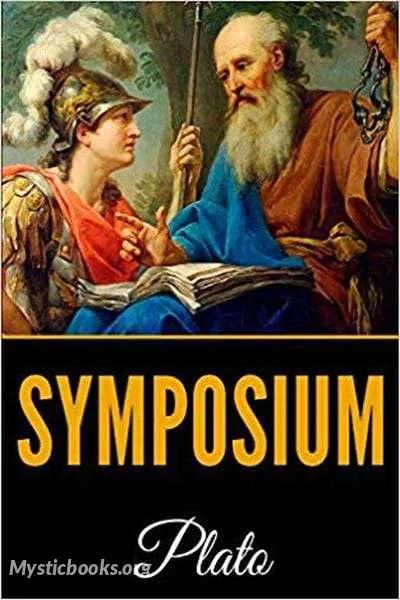
The Symposium
'The Symposium' Summary
The dialogue's seven main characters, who deliver major speeches, are:
Phaedrus (speech begins 178a): an Athenian aristocrat associated with the inner-circle of the philosopher Socrates, familiar from Phaedrus and other dialogues
Pausanias (speech begins 180c): the legal expert
Eryximachus (speech begins 186a): a physician
Aristophanes (speech begins 189c): the eminent comic playwright
Agathon (speech begins 195a): a tragic poet, host of the banquet, that celebrates the triumph of his first tragedy
Socrates (speech begins 201d): the eminent philosopher and Plato's teacher
Alcibiades (speech begins 214e): a prominent Athenian statesman, orator, and general
The story of the banquet is narrated by Apollodorus, but before the narration proper begins, it is shown that Apollodorus is telling the story to a friend of his that isn't named, and also that the story of this banquet has been told before by others, as well as previously by Apollodorus himself. This section previews the story of the banquet, letting the reader know what to expect, and it provides information regarding the context and the date. The banquet was hosted by the poet Agathon to celebrate his first victory in a dramatic competition: the Dionysia of 416 BCE. Apollodorus was not present at the event, which occurred when he was a boy, but he heard the story from Aristodemus, who was present. Apollodorus later checked parts of the story with Socrates, who was also there. In this brief introductory passage, it is shown that the narrator, Apollodorus, has a reputation for being somewhat mad, that he is a passionate follower of Socrates, and that he spends his days either listening to Socrates or else telling others of what he has learned from Socrates. The story, as told by Apollodorus, then moves to the banquet at Agathon's home, where Agathon challenges each of the men to speak in praise of the Greek god, Eros.
Apollodorus tells his friend a story of a symposium, or banquet, that was hosted by the playwright Agathon to celebrate his victory in a dramatic festival the night before. Socrates is late to arrive because he became lost in thought on the way. When they are done eating, Eryximachus takes the suggestion made by Phaedrus, that they should all make a speech in praise of Eros, the god of love and desire. It will be a competition of speeches to be judged by Dionysus. It is anticipated that the speeches will ultimately be bested by Socrates, who speaks last.
Phaedrus starts by pointing out that Eros is the oldest of the gods, and that Eros promotes virtue in people. Next, Pausanias contrasts common desire with a "heavenly" love between an older man and a young man (before the age when his beard starts to grow), in which the two exchange sexual pleasure while the older man imparts wisdom to the younger one. He distinguishes between this virtuous love, and the love of an older man for a young (immature) boy, which he says should be forbidden on the grounds that love should be based on qualities of intelligence and virtue that are not yet part of a boy's makeup and may not develop. Eryximachus has the next speech (although he has switched with Aristophanes) and suggests that Eros encourages "sophrosyne", or soundness of mind and character, and is not only about human behavior, but also occurs in music, medicine, and many other areas of life.
The fourth speech is from Aristophanes, who tells a comic, fantastical story about how humans were at one time two people conjoined, but this was seen as threatening to the gods, so Zeus cut everyone in half just like fish is cut in two parts. The irony in his storytelling is obvious (he praises the "confidence, courage and manliness" of males searching for males "and there is good evidence for this in the fact that only males of this type, when they are grown up, prove to be real men in politics" - which is highly ironical for such a critic of the times' politicians as Aristophanes himself). Love is the desire we have to find our other half, in order to become whole. Agathon follows Aristophanes, and his speech sees Eros as youthful, beautiful, and wise; and as the source of all human virtues.
Before Socrates gives his speech he asks some questions of Agathon regarding the nature of love. Socrates then relates a story he was told by a wise woman called Diotima. According to her, Eros is not a god but is a spirit that mediates between humans and their objects of desire. Love itself is not wise or beautiful but is the desire for those things. Love is expressed through propagation and reproduction: either physical love or the exchanging and reproducing of ideas. The greatest knowledge, Diotima says, is knowledge of the "form of beauty", which humans must try to achieve.
When Socrates is nearly done, Alcibiades crashes in, terribly drunk, and delivers an encomium to Socrates himself. No matter how hard he has tried, he says, he has never been able to seduce Socrates, because Socrates has no interest in physical pleasure. Despite this speech, Agathon lies down next to Socrates, much to Alcibiades' chagrin. The party becomes wild and drunken, with the symposium coming to an end. Many of the main characters take the opportunity to depart and return home. Aristodemus goes to sleep. When he wakes up the next morning and prepares to leave the house, Socrates is still awake, proclaiming to Agathon and Aristophanes that a skillful playwright should be able to write comedy as well as tragedy (223d). When Agathon and Aristophanes fall asleep, Socrates rises up and walks to the Lyceum to wash and tend to his daily business as usual, not going home to sleep until that evening (223d).
Book Details
Language
EnglishOriginal Language
Ancient GreekPublished In
385–370 BCEAuthors
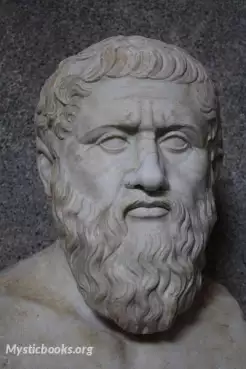
Plato (Πλάτων)
Greece
Plato ( Classical Attic; 428/427 or 424/423 – 348/347 BC)) was an Athenian philosopher during the Classical period in Ancient Greece, founder of the Platonist school of thought and the Academy,...
Books by Plato (Πλάτων)Download eBooks
Listen/Download Audiobook
- Select Speed
Related books
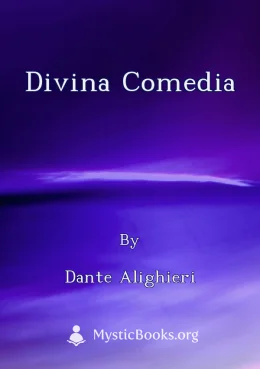
Divina Comedia by Dante Alighieri
The Divine Comedy is an epic poem by Dante Alighieri, first written in the early 14th century. It is widely considered one of the greatest works of wo...

Person and Work of the Holy Spirit by Reuben Archer Torrey
This book, 'Person and Work of the Holy Spirit' by Reuben Archer Torrey, explores the nature and function of the Holy Spirit in the Christian faith. T...

Driftwood by Sara Teasdale
Driftwood is a collection of poems by Sara Teasdale. The poems are mostly short and lyrical, and they often explore themes of nature, love, loss, and...
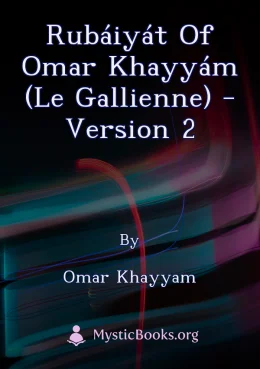
Rubáiyát of Omar Khayyám (Le Gallienne) - Version 2 by Omar Khayyam
The Rubáiyát of Omar Khayyám is a collection of poems attributed to the 11th-century Persian poet Omar Khayyám. The poems are quatrains, each consisti...
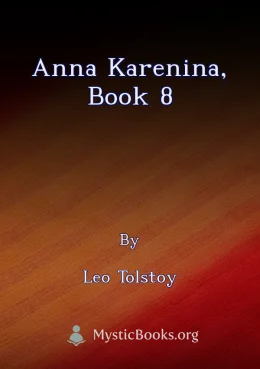
Anna Karenina, Book 8 by Leo Tolstoy
Set against the backdrop of 19th-century aristocratic Russian society, Anna Karenina delves into the complexities of love, marriage, and morality. The...
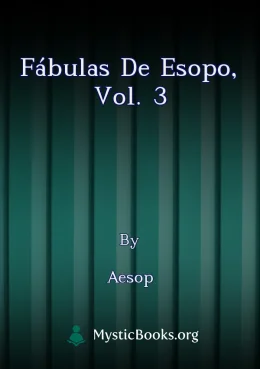
Fábulas de Esopo, Vol. 3 by Aesop
Las clásicas Fábulas de Esopo han sido traducidas a todos idiomas por cientos de años. Las fábulas, en forma de alegorias, nos dan consejos en una for...
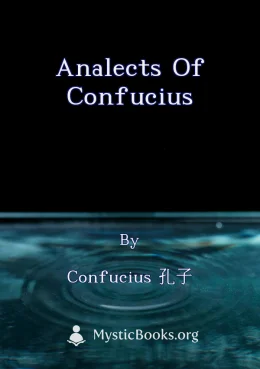
Analects of Confucius by Confucius 孔子
The Analects of Confucius, also known as the Lunyu, is a collection of sayings and anecdotes attributed to the Chinese philosopher Confucius and his d...

In Vino Veritas, from Stages on Life’s Way by Soren Kierkegaard
In Vino Veritas is a section of Søren Kierkegaard's philosophical work, Stages on Life's Way. It presents a series of speeches on the theme of love, d...

Dover Beach by Matthew Arnold
LibriVox volunteers bring you 9 different recordings of Dover Beach, by Matthew Arnold. This was the weekly poetry project for the week of April 8th,...

Sheaf of Roses by Elizabeth Gordon
This collection of poems explores the beauty and significance of roses in all aspects of life. From love and romance to sorrow and loss, the rose is a...
Reviews for The Symposium
No reviews posted or approved, yet...